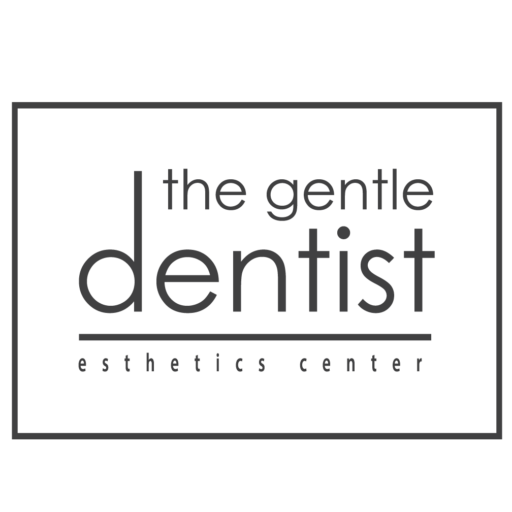How Food Affects Dental Health
The effect of sugars and carbohydrates on teeth
The effect of vitamins and minerals on the gums
Tooth decay and its relationship to food
Foods that are harmful to oral and dental health
Foods that are good for oral and dental health
Nutrition and Dental Health
Teeth may seem hard and far from being affected by nutritional factors and lack of essential materials. However, this is a misconception because teeth, like any other organ in the body, need some nutrients to remain strong, solid, and beautiful. What are these nutrients?
Nutrition, as is well known, is not only essential for dental health but also for general health. This means that dental diseases and health problems resulting from malnutrition may result in other health problems in the body, such as bone and joint diseases.
The relationship between diet and dental health is a proven scientific fact. Following a balanced diet that includes a variety of foods is essential for maintaining good dental health. Foods rich in nutrients such as vitamins and minerals play a vital role in preventing dental problems
How Food Affects Dental Health
Diet plays a major role in maintaining optimal oral health. A balanced diet provides the necessary elements to strengthen teeth, protect gums, and maintain adequate saliva production, which helps fight harmful bacteria.
Essential nutrients for good oral health
Several essential nutrients play a crucial role in oral health. These include:
- Calcium: Strengthens teeth and bones.
- Vitamin D: Facilitates calcium absorption.
- Vitamin C: Promotes healthy gums.
- Vitamin A: Contributes to the formation and maintenance of tooth enamel.
Diet can have both positive and negative effects on our teeth and gums. It is important to know how certain foods can affect oral health.
The effect of sugars and carbohydrates on teeth
Excessive consumption of sugars and refined carbohydrates can increase the risk of tooth decay. Bacteria accumulated on teeth feed on sugars to produce acids that damage tooth enamel. Limiting your consumption of sweets, soft drinks, and processed foods can help prevent tooth decay.
The effect of vitamins and minerals on the gums
A deficiency in vitamins and minerals can weaken the gums, increasing the risk of gum disease. A balanced diet rich in fruits and vegetables provides the nutrients needed to maintain healthy gums and prevent problems such as gingivitis.
Tooth decay and its relationship to food
When sugar, starch, and plaque accumulate on the teeth due to poor nutrition and poor hygiene. A chain reaction then occurs with many effects:
- Bacteria quickly feed on these starches and sugars, and grow in the cavities of the teeth and gums that are difficult to reach.
- When eating, bacteria begin to release acids capable of removing minerals from the enamel, to the point of causing small cracks to form.
- Bacteria occupy these tiny openings and are difficult to get rid of.
- If these cracks become deeper, bacteria and acids reach the dentin, a layer of the tooth that is softer and easier to pierce than enamel.
- Cavities can increase until the infection reaches the pulp. The more sugar and starch that bacteria feed on on their way to the deeper layers of the tooth, the stronger the drilling inside the tooth. The more holes in the tooth, the more likely it is that sugar and starch will accumulate in spaces that the toothbrush cannot reach.
- But bacterial plaque is not the only source of risk for the appearance of caries. When bacteria find the right environment to live in and the right food to feed them, they can not only erode tooth enamel. They can also cause a host of problems, such as gingivitis, which can progress to gum recession, putting you at risk for tooth loss. Worse still, it’s an open door for infection to enter your body. Recent studies have linked gingivitis to cardiovascular damage, for example.
Foods that are harmful to oral and dental health
Avoid as much as possible these foods and drinks that can harm your teeth:
Candy
As you already know, hard and sugary candies that we suck or break with our teeth can seriously damage the enamel and compromise oral health. They are full of sugar that sticks to the teeth and dissolves little by little.
Acid drinks
Juices, sports drinks, and all soft drinks are high in sugar and acids, both of which are very harmful to your teeth. When you want to drink something other than water, look for brands that do not contain added sugar, or try adding a little fruit or vegetable (such as watermelon or cucumber) to your water to give it a refreshing and much less harmful flavor.
Cake
This irresistible dessert, like any other dessert made with a lot of sugar, causes many problems for the teeth. Foods that easily stick to the teeth and connect them to the gums allow the sugar to attack the enamel and are difficult to remove.
Ice
Chewing ice and other hard materials can crack the enamel and leave the tooth exposed. You should also avoid other habits that are harmful to your mouth, such as opening bottles or bags of chips with your teeth.
Hard Nuts
Chewing hard nuts can break down enamel and damage dental implants, dentures, and braces. If they are particularly hard nuts, it is advisable to eat them in smaller pieces, rather than whole fruit, or eat them ground or spreadable
Foods that are good for oral and dental health
To have healthy teeth and gums, you should include these nutrients in your diet:
- Calcium, fluoride, and vitamin D to keep your teeth strong: dairy products, leafy greens and broccoli, oranges, whole grains, oily fish… They are rich in these nutrients.
- Vitamin C and K for healthy gums. You will find them in kiwi, strawberries, citrus fruits, blueberries, figs, or soybeans.
- Vitamin A for strong tooth enamel. Orange vegetables are rich in this vitamin: carrots, sweet potatoes… as well as spinach and cabbage.
- Vitamin B2 keeps your tongue healthy and prevents ulcers and you will find it in egg whites or whole grains.
- Water: Drink at least two liters of water a day to keep your mouth moist and clean.
- Green tea contains polyphenols that control bacteria that cause cavities.
If you have a sweet tooth, don’t be shy and enjoy a little chocolate. Because it contains at least 80% cocoa. It has antibacterial effects.
Apples, celery, carrots… they help clean your teeth.
Conclusion
As we have seen the strong relationship between what we eat and the possibility of developing problems such as tooth decay and gingivitis, many foods promote oral and dental health and many of them can harm them. From here we realize the role of nutrition in dental health
See also: What is dental calculus cleaning?
Follow us on Instagram The Gentle Dentist
Sources
- https://www.ada.org/resources/ada-library/oral-health-topics/nutrition-and-oral-health
- https://nutritionsource.hsph.harvard.edu/oral-health/
- https://www.thantakit.com/nutrition-oral-health/
- Myth or Fact? Everything You Need to Know About Teeth Whitening at Home
- Dental Implants: The Perfect Solution for Tooth Loss and Restoring Self-Confidence
- Secrets of a Healthy Mouth: Daily Habits That Protect Your Teeth from Cavities
- Thumb sucking in children and its effect on dental health.
- Benefits of regular teeth cleaning

